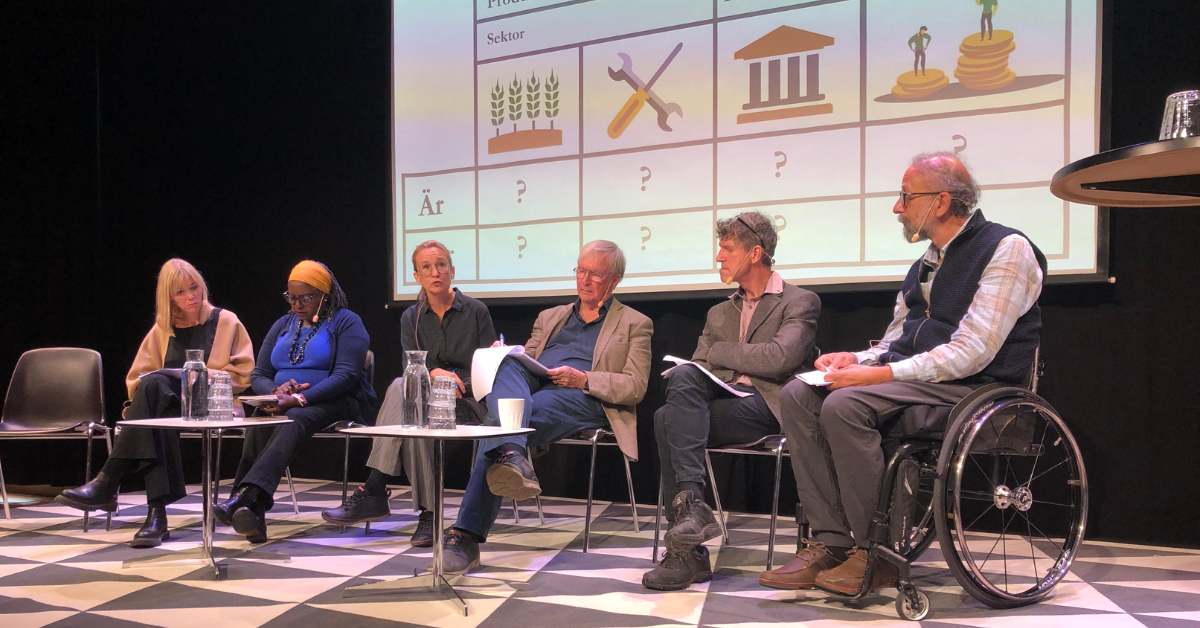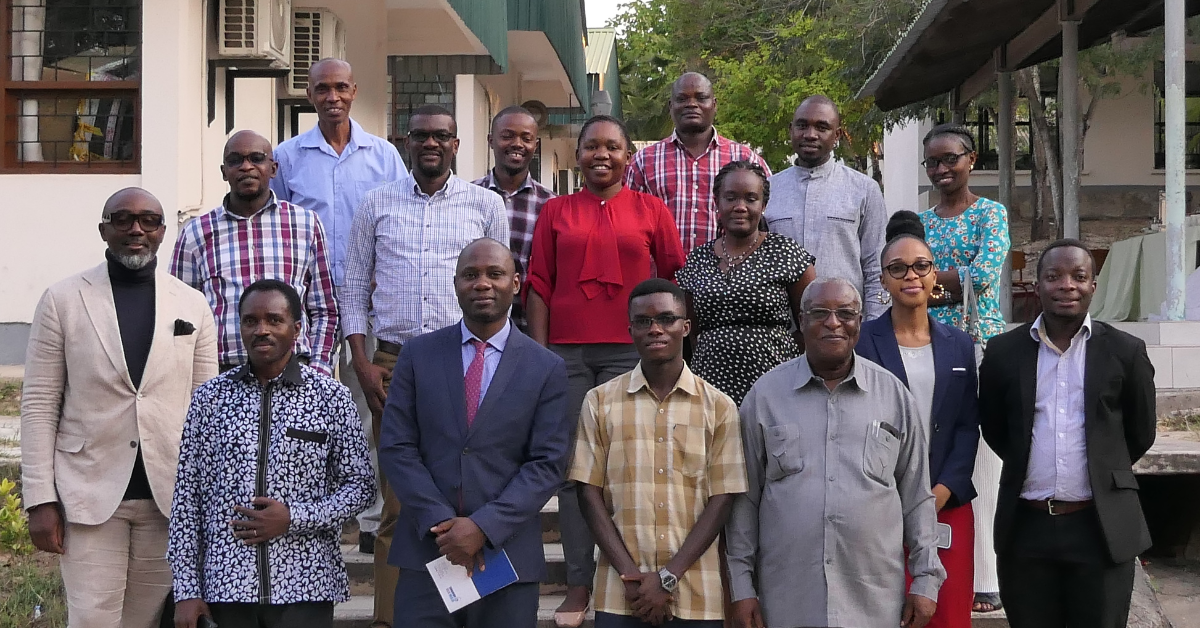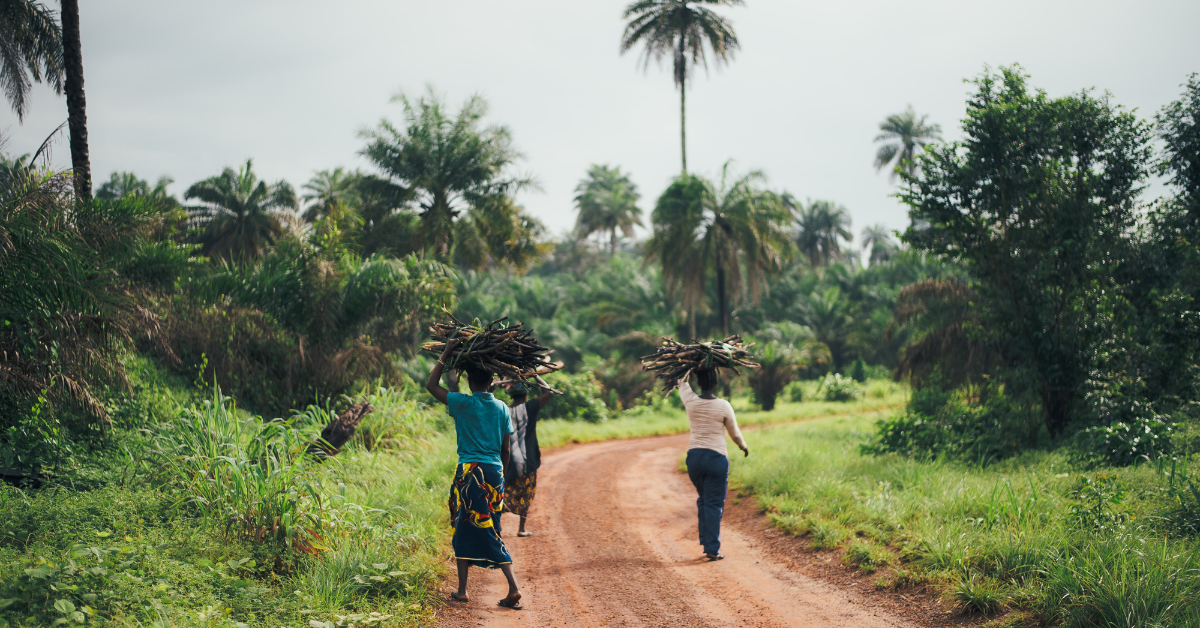
Recent years have seen an increase in hunger and malnutrition. The latest issue on the state of food security and nutrition by the Food and Agriculture Organisation (FAO) showed that reaching SDG 2 by 2030 is becoming increasingly difficult. In light of this development, support to agricultural development in the Global South continues to play a crucial part in the effort to provide food security for all.
The main goal of the seminar on hunger, food security and agriculture was to present two reports regarding Swedish aid to agriculture and to discuss their findings. The first report is an evaluation commissioned by Sida, on how Sida approaches and work with food security in its programmes, and where there is room for improvement. The second report, published by SEI for the Expert Group for Aid Studies (EBA), maps trends in Swedish aid to agriculture from 2005 to 2020.
Evaluation on how Sida approaches food security
The evaluation on how Sida approaches food security concludes that Sida lacks focus and direction in its work with food security. Sida has many relevant specific programmes that impact on food security. However, apart from those working with agriculture, most Sida staff do not see food security as being relevant for their work. The EBA report find that agriculture and food security have low priority and visibility in Swedish aid. As the development landscape changed, so has also Swedish aid to agriculture. An integrated agricultural development agenda now includes agronomic, environmental, social and economic aspects of agricultural development. This indicates that aid to agriculture is integrated into other development areas, but also that aid to agriculture is invisible and underreported in Swedish aid.
Is aid to agriculture in Swedish development cooperation insufficient? Or is the integration of agriculture into other thematic areas positive for the overall aim of Swedish development policy? Mats Hårsmar, Deputy Managing Director at EBA asked these questions and introduced the seminar. By looking at food security from different perspectives, the panel departed from the new reports and discussed both the current and future situation of Swedish aid to agriculture.
This article points to three relevant takeaways from the seminar to generate action around the vision of sustainable agriculture and food security, and to promote multisectoral dialogue around these issues.
1. Building human resource capacity
The lack of knowledge on agriculture and food security was highlighted by Ian Christopolos, evaluator at Glemminge Development Research, explaining that “there are not many left in Sida that work with agriculture.” A comparison was made with the embassies abroad having more knowledge and insights into these issues than those working at the Swedish offices of Sida Stockholm. Agreeing with this statement, Linley Chiwona Karltun, a Researcher at SLU, pointed out the shrinking of human resource capacity in the form of academic competence and expertise employed by Sida. She explained that there is currently a rift between academia and development work. Students are encouraged to study issues related to sustainable development, but the road to actual employment within the development sector is difficult to navigate. She also claimed that people with agricultural expertise are increasingly rare in the Swedish resource base.
The EBA report further highlighted the issue of human resource capacity at Sida. Ivar Virgin, a Senior Research Fellow at SEI, and one of the authors of the EBA report, stated that there has been a decrease in agricultural-related competence within Sida and that the available thematic expertise is more spread out now than before. Agriculture is seen as a sector and “food security is something that people working with agriculture does, it is not our [Sida’s] responsibility,” was an answer Christopolos’ team got from their interviewees at Sida. By not clarifying the goals and targets within Sida’s programmes, Christopolos fear that food security can have a similar fate as nutrition. The agricultural sector views nutrition as a health issue and the health sector views it as an agricultural issue. With neither of them taking responsibility it risks falling through the cracks.
2. Increasing dialogue
Not widely mentioned in the reports, dialogue and networking were also brought to attention during the discussions. Virgin experienced the dialogue around food security and what sustainable agricultural development entails as lacking, particularly within Sida. The panellists all agreed that an increase in conversations around the issues of food security is important. However, True Shedvin, Head of Sida’s Unit for Global Sustainable Economic Development, highlighted that the national-level networks of Sida staff with agricultural expertise are well structured for their specific contexts in Sida’s partner countries. The issue then seemed to be on a Swedish level, where most of the panel agreed that more work should be done. Chiwona Karltun stressed the importance to continue to work against silo thinking.
3. ‘Food is different’
To clarify the desired achievement with food security, Christopolos and his team suggested the implementation of a “right to food” perspective that would place the issue of food security within the right-based views at Sida. Currently, food security is mentioned as an implicit goal in strategies and programmes working with livelihoods, but it is unclear in what context. Furthermore, there is no measurement of whether food security is practically implemented, so it is difficult to know if the programmes that implicitly mention food security result in providing food security. One way of resolving this issue could be for Sida to have a more goal or target-oriented focus on food security, continued Christopolos. This could provide the measure and evaluation of results and increase the pressure set by Sida on organisations working with these issues, such as the FAO.
Arne Bigsten, Senior Professor at the University of Gothenburg was hesitant to implement the ‘Right to food’ perspective as it can be vague and elusive. He preferred Sida’s definition of food security, which is viewed as related to business and livelihood, rather than being a source of food for household consumption. Economic growth is the solution to hunger, by increasing growth in the agricultural sector it can ensure that food availability remains high on both a national and household level, continued Bigsten.
Matilda Baraibar Norberg, a Researcher on economic history at Stockholm University agreed that the ‘right to food’ perspective could be seen as a little “airy” but noted that implementing this perspective could show that “food is different” and highlighted the declaration of the right to food as a human right by the UN.
This article was written by Nathalia Grandon at SIANI, and first published on www.SIANI.se.










Recent Comments